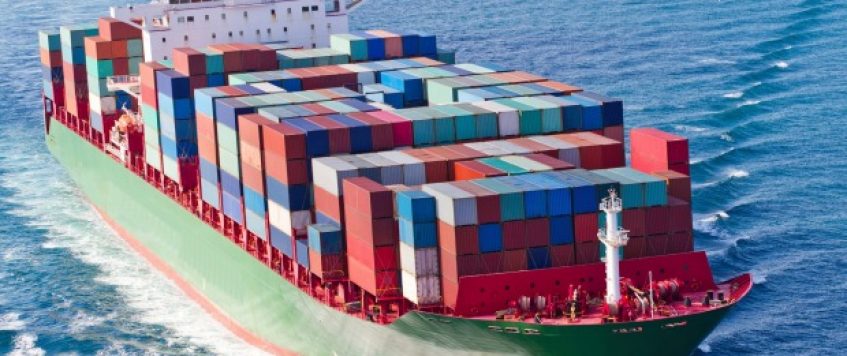- By TOP CHINA FREIGHT
- September 19, 2025
- Shipping
Table of Contents
How to find a freight forwarder in China is one of the most critical questions every importer faces when managing supply chains. Finding the right partner can make or break your import business, since many importers struggle with high shipping costs, customs delays, and communication barriers. If you want to understand how to find a freight forwarder in China who fits your needs, this guide will walk you through key steps, costs, methods, and strategies for choosing a reliable partner.

What is a Freight Forwarder and Why Do You Need One?
A freight forwarder acts as the middleman between your supplier in China and your final destination. They manage booking cargo space, handling customs, preparing documents, and arranging delivery. Without one, international shipping becomes overwhelming, especially for new importers.
Moreover, forwarders negotiate better rates with carriers because they ship in bulk. Therefore, choosing a reliable freight forwarder in China not only saves money but also ensures smoother supply chain management.
How Much Does a Freight Forwarder in China Charge?

Freight forwarding fees depend on several factors, including shipment size, mode of transport, route, and service level. Below is a simplified comparison:
| Service Type | Cost Range (USD) | Inclusions |
|---|---|---|
| Sea Freight (20ft FCL) | $1,500 – $3,000 | Ocean freight, port fees, documentation |
| Sea Freight (40ft FCL) | $2,500 – $5,000 | Larger cargo, suitable for bulk imports |
| LCL Cargo | $50 – $90 per CBM | Shared container space, affordable for small loads |
| Air Freight | $4 – $8 per kg | Fast delivery, ideal for urgent shipments |
| Express Courier | $6 – $12 per kg | Door-to-door service, limited weight capacity |
Tip:
Always ask for a breakdown of charges to avoid hidden costs.
How to Find a Freight Forwarder in China for Your Business
When looking for a freight forwarder, focus on trust, transparency, and experience. Here are steps to guide you:
- Check industry certifications (FIATA, WCA, NVOCC).
- Evaluate communication skills – forwarders must provide updates clearly.
- Review their local presence in major Chinese ports (Shanghai, Shenzhen, Ningbo, Qingdao).
- Request references from existing clients.
- Compare quotes across multiple forwarders.
Therefore, the best approach is to shortlist 3–5 companies and test them with smaller shipments before committing long-term.
What Documents Should a Freight Forwarder Handle?

Paperwork is one of the most challenging parts of importing. A qualified freight forwarder in China should prepare the following:
| Document | Purpose |
|---|---|
| Bill of Lading (B/L) | Proof of shipment and title of goods |
| Commercial Invoice | Declares value of shipment for customs |
| Packing List | Details cargo contents and weight |
| Certificate of Origin | Confirms where goods are manufactured |
| Import/Export Licenses | Ensures compliance with trade laws |
| Insurance Certificate | Protects goods against loss or damage |
Having these in order avoids costly customs delays.
Should You Choose Sea Freight or Air Freight?

Both sea and air freight have pros and cons. A reliable forwarder helps you choose based on your needs:
| Factor | Sea Freight | Air Freight |
|---|---|---|
| Cost | Lower for large shipments | Higher, charged per kg |
| Transit Time | 20–40 days depending on route | 5–10 days |
| Capacity | Best for bulk cargo | Best for small urgent loads |
| Reliability | Weather delays possible | More reliable and faster |
Therefore, sea freight is ideal for bulk and cost-saving, while air freight is best for high-value, time-sensitive shipments.
How Long Does Shipping from China Take?
Transit time varies depending on mode and port of entry:
| Route | Transit Time (Days) |
|---|---|
| Shanghai → Los Angeles (Sea) | 15–20 |
| Ningbo → New York (Sea) | 30–35 |
| Shenzhen → Houston (Sea) | 28–33 |
| Guangzhou → Chicago (Air) | 5–7 |
| Beijing → Miami (Air) | 6–9 |
In addition, customs clearance and inland trucking can add 7–10 days. Planning with a buffer ensures smoother operations.
What Are the Benefits of Working with a Local Chinese Forwarder?
Working with a China-based forwarder provides several advantages:
- Direct supplier communication in Chinese.
- Faster issue resolution at ports of loading.
- Better freight rates due to strong carrier relationships.
- Knowledge of local regulations for export compliance.
Moreover, local agents often provide warehousing and consolidation services, which reduce overall logistics costs.
Case Study: Small Business Importing Electronics

Common Mistakes When Choosing a Freight Forwarder
hidden fees may appear later.
unlicensed agents risk cargo holds.
poor updates can disrupt supply chains.
uninsured cargo increases financial risks.
missing better deals.
How to Negotiate Better Rates with Freight Forwarders
- Book early to avoid peak season surcharges.
- Consolidate shipments into full containers when possible.
- Build long-term relationships for loyalty discounts.
- Be flexible with routes to choose cheaper ports.
- Request all-inclusive quotes to compare transparently.
With these strategies, importers can reduce freight costs without compromising on service quality.
Conclusion
Finding the right partner is critical in international logistics. If you know how to find a freight forwarder in China, you can cut costs, avoid delays, and improve supply chain efficiency. Moreover, by checking certifications, comparing rates, and testing service quality, businesses can secure long-term shipping success. Choosing wisely today will save you both time and money tomorrow.
Need a Shipping Quote?
If you want expert guidance and peace of mind, our team is ready to assist.
TJ China Freight offers tailored solutions to help businesses of all sizes ship more reliably from China.

FAQ
Q1:How do I verify if a freight forwarder in China is reliable?
Check licenses, industry certifications, and client references. A reliable forwarder should provide transparency and have a proven shipping record.
Q2:Can a Chinese freight forwarder arrange door-to-door service?
Yes. Many forwarders offer full-service solutions, including pickup at suppliers, customs clearance, and delivery to your warehouse.
Q3:Do I need insurance for shipments from China?
Yes. While not mandatory, cargo insurance protects against loss, theft, or damage during transit and is highly recommended.
Q4:What is the difference between an NVOCC and a freight forwarder?
An NVOCC issues its own bill of lading, while a freight forwarder arranges shipments through carriers. Some companies operate as both.
Q5:Can a freight forwarder in China handle small shipments?
Yes. They offer LCL consolidation, where your cargo shares container space with others, making it cost-effective for small volumes.
